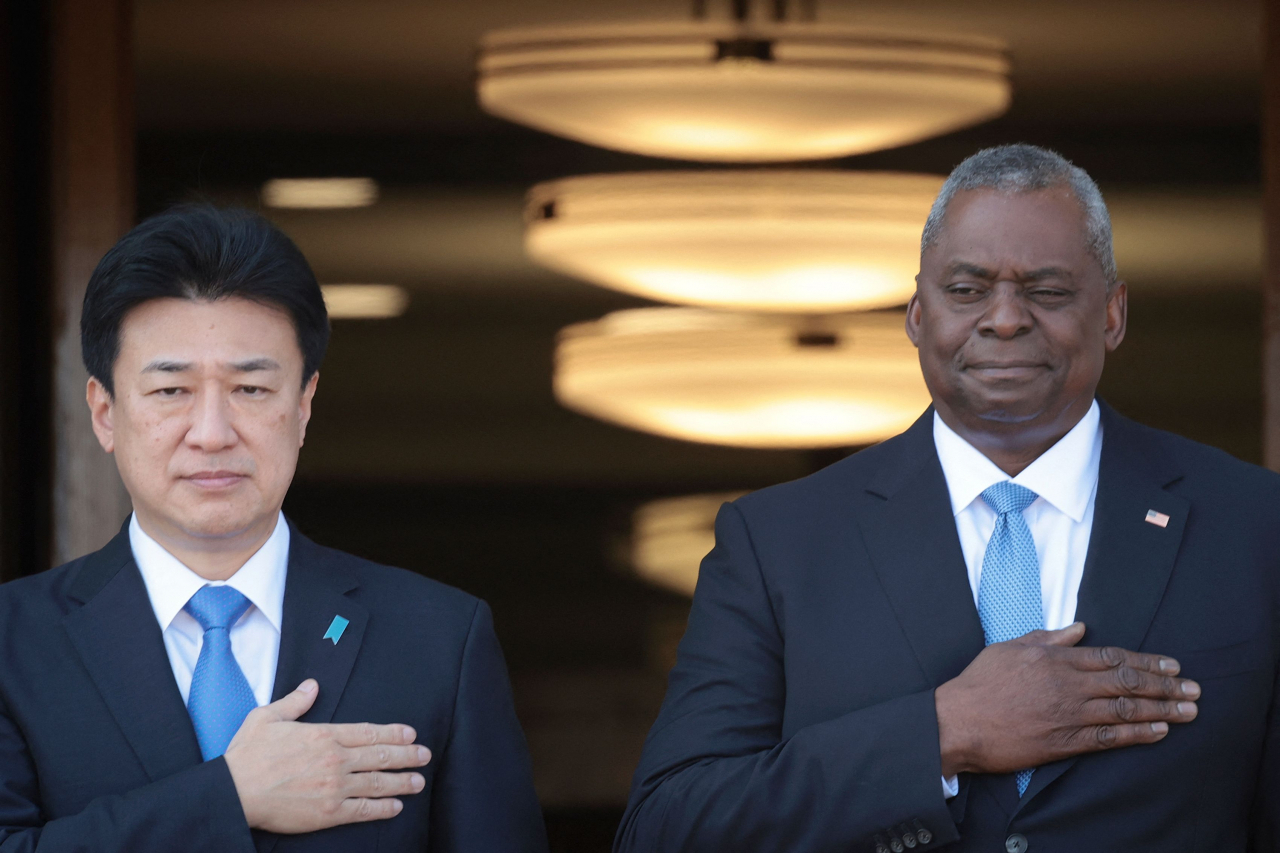Pentagon chief renews support for Japan's 'counterstrike' capabilities amid N. Korean threats
By YonhapPublished : Oct. 5, 2023 - 09:21

US Defense Secretary Lloyd Austin reiterated his backing for Japan's decision to build "counterstrike" capabilities during talks with his Japanese counterpart on Wednesday, as Washington and Tokyo are tightening security coordination in the face of North Korea's evolving threats and China's growing assertiveness.
Austin held his first in-person talks with Japanese Defense Minister Minoru Kihara at the Pentagon since Kihara took office last month.
Their agenda included Japan's decision last year on the acquisition of counterstrike capabilities that observers said would allow Tokyo to launch a counterattack if it or its ally, the US, comes under attack -- an apparent change further away from its long-held defense-oriented policy.
"Secretary Austin reiterated his support for Japan's decision to strengthen its defense, including its acquisition of counterstrike capabilities and increase in defense spending," Pentagon Press Secretary Brig. Gen. Pat Ryder said in a statement.
"Both leaders reaffirmed the strategic alignment between the United States and Japan, as well as shared alliance goals to optimize force posture, bolster integrated deterrence, modernize roles and missions, and further cooperate with like-minded partners to ensure a free and open Indo-Pacific," he added.
In December last year, Tokyo announced revisions to its key security and defense documents in what was seen as a marked shift for a country long restricted by its post-war "pacifist" constitution. Under the revisions, Tokyo embraced "counterstrike" capabilities.
Later, North Korea accused Japan of having formulated an invasion-oriented security strategy and warned of "actual action" without elaboration.
After his talks with Austin, Kihara said Japan will begin procuring Tomahawk cruise missiles from the US in the fiscal year of 2025, a year earlier than planned, according to Kyodo News. Japan plans to buy 400 Tomahawk missiles, each with a range of about 1,600 kilometers, the Tokyo-based news outlet said.
At the Pentagon meeting, Austin also reaffirmed America's "unwavering and ironclad" security commitment to Japan, according to Ryder.
"The two leaders confirmed both countries' mutual commitment to strengthening the US-Japan alliance amid historic shared momentum toward peace, stability, and deterrence in a free and open Indo-Pacific," the press secretary said.
In the midst of North Korea's advancing nuclear and missile threats, the US has been striving to strengthen cooperation with its two East Asian allies, South Korea and Japan.
The effort culminated at the historic Camp David South Korea-US-Japan trilateral summit in August, which produced a set of documents, including one committing the three countries to consult each other in the event of a common threat. (Yonhap)



















